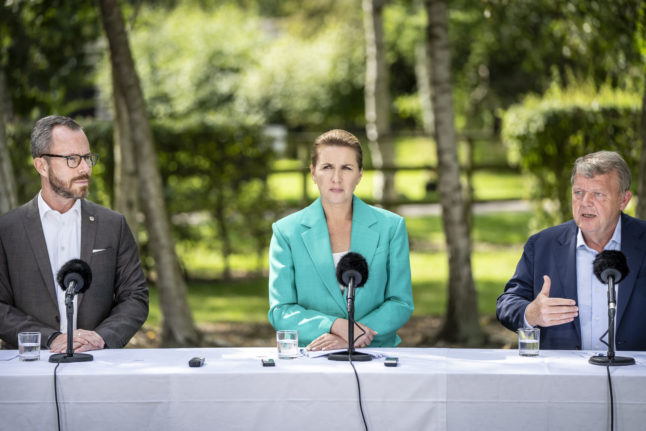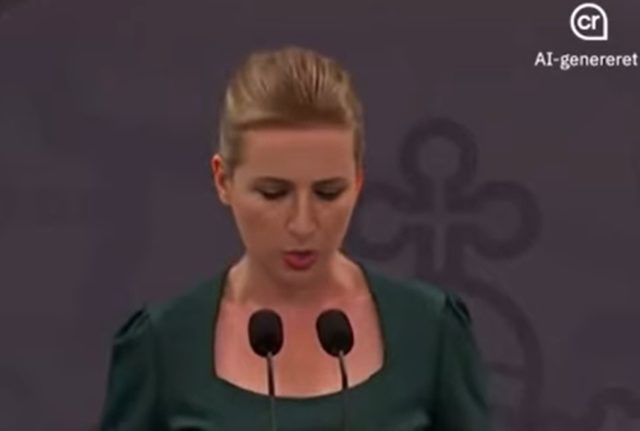Frederiksen confirmed the government’s plan to help local authorities financially during a press briefing at which the leaders of the three parties in the coalition government took part, following a government “seminar” this week.
The PM was joined by Foreign Minister Lars Løkke Rasmussen and Economy Minister Jakob Ellemann-Jensen, leaders of the Moderate and Liberal parties respectively.
“The government proposes to set aside one billion kroner extra per year for local welfare,” Frederiksen said.
The money must be provided to municipalities and regional health authorities quickly, she said. Local governments will face “difficult budgets” in 2024 and beyond due to planned cuts, the PM said.
A press statement from Local Government Denmark (Kommunernes Landsforening, KL), the confederation that represents municipalities, states that municipalities will get an increased “service framework” budget of 650 million kroner in 2024, with 350 million going to Regions, the five broader regional boards which administer health services.
The government announcement comes after officials from Regional boards told newspaper Jyllands-Posten that that savings of 2.5 billion kroner must be made to cover costs related to inflation and medicine prices.
READ ALSO: What exactly is wrong with the Danish health system?
Frederiksen said that the proposed additional billion kroner “does not solve all problems”.
“But it’s nevertheless an important step. It’s important to say that inflation hasn’t completely gone away yet,” she said.
“We still have to hold back,” she said.
A proposed budget for 2024 is expected to be presented by the government next week.



 Please whitelist us to continue reading.
Please whitelist us to continue reading.
Member comments